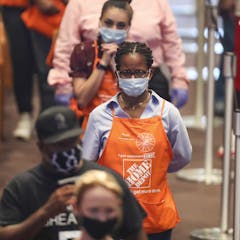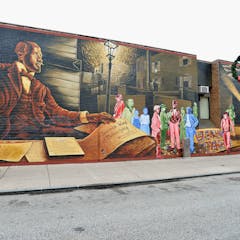
Articles on Racism
Displaying 1 - 20 of 1613 articles

The death of O.J. Simpson rekindled memories of the racial divisions of his domestic violence case involving the murder of his former wife and her friend.

Insights from the book White Fragility also shed light into racism in Arab society.

There’s a backlash against programs that aim to reverse the effects of systemic racism in the US. A survey indicates that racism is behind that backlash.

Beyoncé’s country-inspired album has caused a stir because the country music scene has a history of racial segregation that has erased its Black roots and gatekept it from Black artists.

Rural white people have long held disproportionate power in US politics. But polls suggest their commitments to the American political system are eroding.

Our research reveals why discrimination in the NHS should be seen as a public health issue

Confinement was the essence of Linda Martell’s brief career as a country star in the 1970s – and it’s the exact sort of fate that Beyoncé has sought to avoid.

Representing 2% of global GDP, the fashion industry must use its cultural reach to drive a shift towards a more sustainable and equitable industry.

False ideas about the extinction of the white race, spread around the late 19th and early 20th centuries, gave rise to xenophobic and anti-immigration conspiracy theories.

9 Black women who were working on or recently earned their PhDs told a researcher they felt isolated and shut out.

It’s been nine years since #OscarsSoWhite called out a lack of diversity at the Oscars. Has anything changed? Prof. Naila Keleta-Mae and actress Mariah Inger unpack the progress.

Racism can be a workplace issue, even at Home Depot.

Frank Hester’s words are only the latest extreme example of the constant discrimination black and ethnic minority women face when they enter public life.

Claims of anti-white or “reverse” racism are based on a shallow, misguided and inaccurate understanding of what racism really constitutes.

The DCMR team has been busy prepping new episodes and next week, we start releasing episodes for season 7, taking our anti-racist lens to the news and issues occupying a lot of our minds these days.

When Liz Truss blames shadowy elitists for her failings as prime minister, she is leaning into a tried-and-tested formula.

Acknowledging that factors like the built environment, social and health systems, and outdated policies are the problems — rather than people — is a step towards healthier and safer workplaces.

Over a century ago, white Philadelphia elites believed the city was going to the dogs – and they blamed poor Black inner-city residents instead of the racism that kept this group disenfranchised.

A scholar on racism weighs in on a recent court decision that upheld a school’s decision to punish a Black male student for wearing his hair in long locs.

Families in the UK play a significant role in introducing children to colourist views. They can also be instrumental in challenging them.
